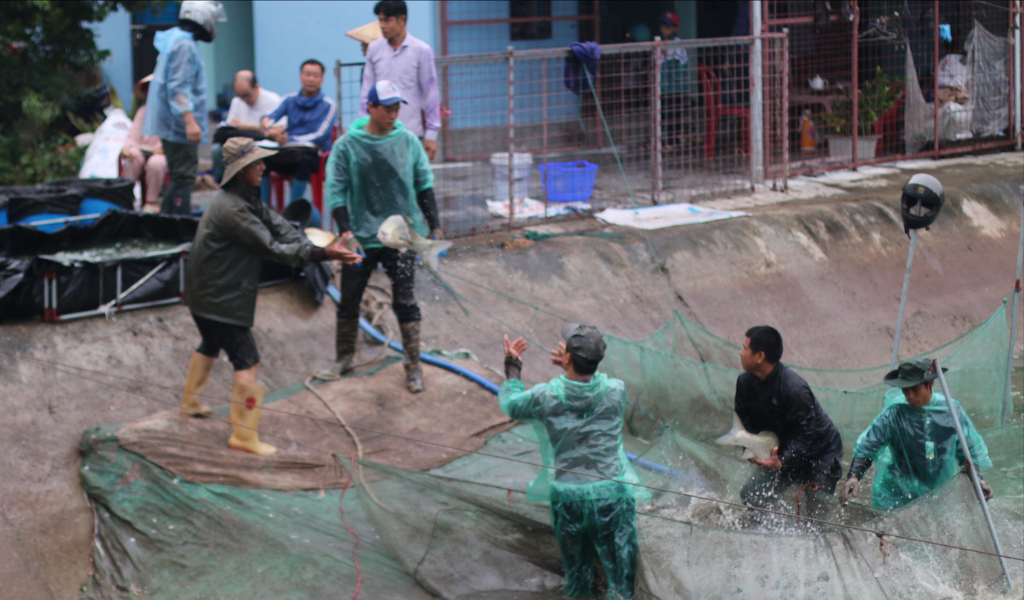The busy streets of Hanoi are full of Vietnamese flags and many people dressed in military attire to mark the 50th anniversary of the end of Vietnam War (or the American War as it is sometimes called in Vietnam). With celebrations across the country, an estimated 13,000 people attended the biggest event in Ho Chi Minh City – formerly known as Saigon – which was “liberated” by the communist-led North on 30 April 1975.

Vietnam has changed enormously in the past 50 years. The economic reforms initiated in 1986 – known as ‘Đổi Mới’ (meaning renovation) – were a major turning point for the country as it shifted towards the goal of a ‘socialist market economy’. The sweeping changes induced by this reform have been praised as a major driving force for Vietnam’s impressive economic growth, poverty reduction, and improvements to the lives of Vietnamese people. Today, a visit to Vietnam feels always hopeful. The city of Hanoi is vibrant, with urban living standards increasing by the day, and streets full of commercial activities. However, the reality for some people in this rapidly developing economy is not always so rosy, including in rural farming communities.
The harsh reality of farm-based livelihoods
Our project, Sustainable and Equitable Aquaculture (SEA) in Vietnam takes us right into the modern-day reality of rural farming-based communities. Just three hours drive from the capital, Hanoi, coastal provinces such as Nam Dinh have always been an important area for aquaculture farming. The nature of work is, at times, harsh – workers on clam farms talk about long working hours at sea. Most of their work is physical. They are concerned that their vital livelihoods can be replaced by machinery and modern technology any day. Male workers spend significant amount of time in a basic hut with little protection against storms, scorching heat, and bitter winter cold. Many have been injured, and people have died due to these working conditions.
In the fish farming sector, workers complain about poor protection against occupational injuries, including having to handle large live fish. It is rare that they receive compensation for any injuries related to work, highlighting the informal and precarious nature of aquaculture-based livelihoods.
One may wonder how such harsh livelihoods exist in a growing economy, and how workers accept such precarious work. Workers explained to us that they lack education and specialised skills, so they are grateful to have relatively stable and high-paying jobs. The hourly wage in the aquaculture sector is higher than working in nearby industrial zones. Their work is relatively close to home, so they can enjoy time with their families. They are content with their reality.
Support to drive equitable and sustainable livelihoods
Fish and clam farm owners have experienced more stability in their work, which is less physical. However, they also feel uncertainty for the future linked to environmental challenges. Clam farmers reported that their harvests are heavily affected by environmental conditions. Farmers told us that they have received limited state-based support for the adoption of aquaculture technology and instead rely on private sector investment and knowledge, much from China. The challenge here is whether Vietnam can support these farmers to adapt and create technologies and new knowledge that can enhance the natural environment, secure decent livelihoods, and sustain the growth and continuity of the aquaculture sector.
Current national policies – especially those concerned with land use – are heavily focused on preserving rice cultivation. In our study site, many farmers complained that they are unable to expand their lucrative aquaculture production because of the land usage “master plan” imposed by the state to maintain rice farms. This reflects the global trends of the 1970s when many countries focused on staple grain production to achieve food security. But these policies are those of the previous century, not fit for purpose for the multitudes of challenges we face today.
Hopes for the future
When asked what they wished for their children and grandchildren, the farm workers had one simple message:
“Not what I do now”
They long for their future generations to have better jobs – stable, office-based jobs that do not rely on the harsh environment. Educating their children is top priority. Many sons and daughters are studying at universities both in Vietnam and abroad and working in large cities and richer economies (e.g. South Korea, Japan) to obtain education and skills needed to secure better futures.
Speaking with these aquaculture workers helps us identify the challenges Vietnam faces today. How can the economy keep developing to provide for the hopes and aspirations of people sacrificing their health and wellbeing for their future generations? This is a huge challenge for Vietnam. It is difficult for university graduates to find desirable jobs. They may end up in precarious work in industrial zones with poor working conditions and low pay. This is not what their parents and grandparents dreamed of for their children and grandchildren.
Given its vibrant and innovative nature, Vietnam has the capacity and experiences to drive equitable and sustainable economic growth. Whether and how exactly this will happen, and when, is yet to emerge. But on this significant anniversary of the end of Vietnam War, the world is closely watching Vietnam, and Vietnamese people remain hopeful for a bright future.
